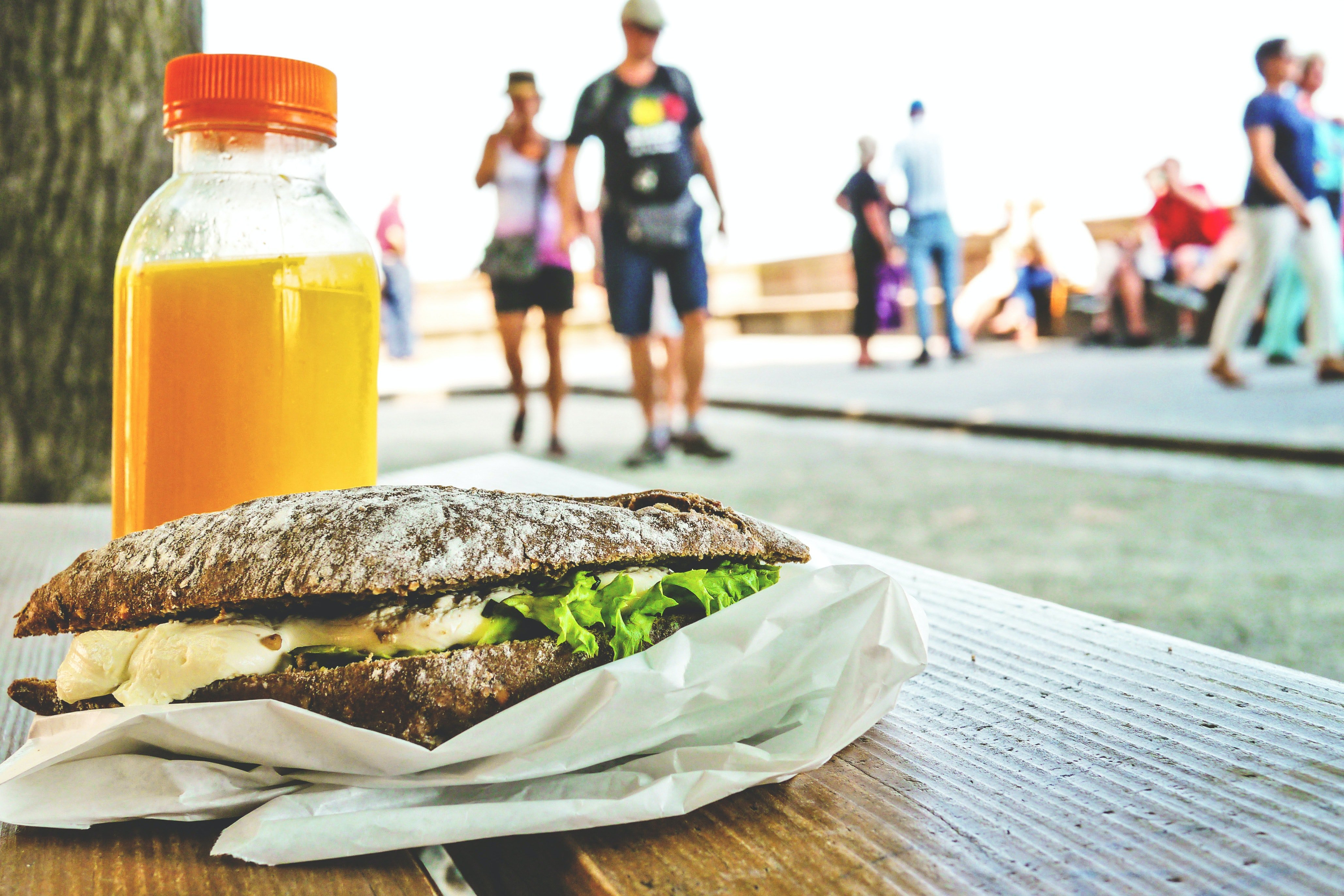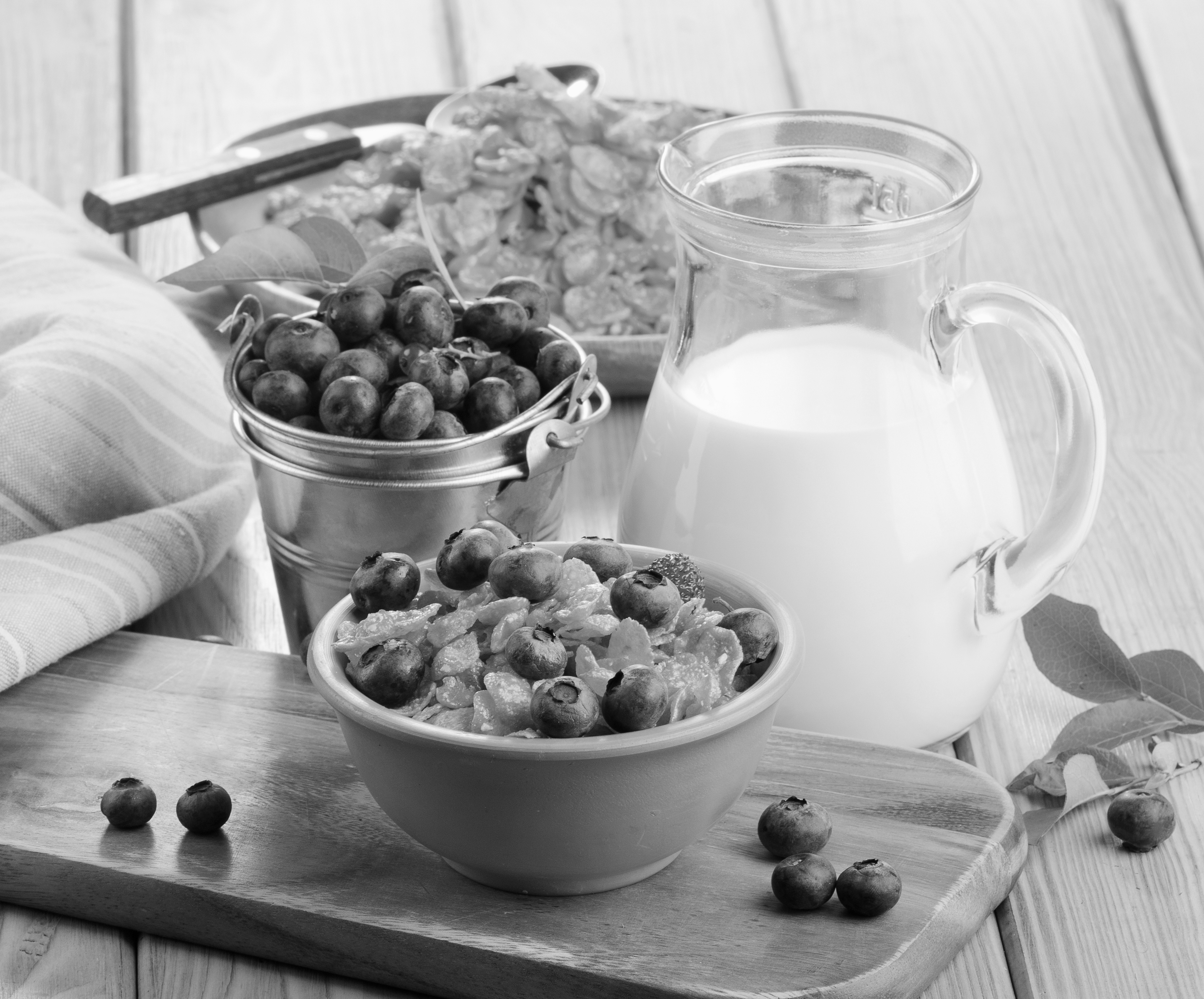Eat Breakfast. It will keep you lean, happy and performing well.

We’ve all heard it: “Eat your breakfast! It’s the most important meal of the day!” A breakfast-lover myself, I never understood why someone would skip this nutritious and delicious meal. But then I entered college and experienced the rushed mornings that make it harder (not impossible) to prepare and eat a well-balanced breakfast. Athlete nutrition is not only about maintaining a healthy lifestyle, but also about fueling the body for intense training sessions, competition and proper recovery. This post is aimed at reminding athletes that one of the easiest ways to keep their mind and body healthy is to start the day with a healthy breakfast. The benefit to eating breakfast outweighs any perceived reason not to. With a little planning and mindfulness about your morning fuel source, you will be on your way to replenishing glycogen stores, improving your weight management and enhancing your concentration and cognition. If you’re already a breakfast champion, read on to find out what professional athletes are eating in the A.M. to see how you compare!
The Benefits of Breakfast
- Replenishing glycogen stores: Sleep is an essential part of your recovery. Unfortunately, during this time, the body’s glycogen stores are depleting. For optimal performance, it is vital that an athlete to replenish these stores to prepare for that day’s training sessions. Without a good breakfast you are putting yourself at a disadvantage and are making it more difficult to perform in that day’s practice or competition.
- Weight management: Research shows that eating a well-balanced breakfast is associated with lower energy intake throughout the day. In fact skipping breakfast can lead to a larger appetite as the body is lacking the fuel it needs. In the nonstop student-athlete lifestyle, hunger throughout the day can lead to poor and impulsive nutrition decisions, often enticing you to buy what is available when the hunger hits. Eating a nutritious breakfast can prevent unhealthy snacking and keep you on your nutrition regimen.
- Improved concentration and cognition: Many studies have shown that eating breakfast can increase memory function during the day. American Journal of Clinical Nutrition published this study, and found that blood glucose increases after a meal (like breakfast), which helps improve cognition. This boost in memory can not only help you in the classroom, but it can also improve concentration during your training-a vital component in avoiding careless injuries.
What the Pros eat for Breakfast!
Everyone has a unique breakfast routine. I caught up with some professional athletes and asked what their typical breakfast looks like. Here’s what they said:
- Sara Isakovic-Olympic Silver Medalist: Swimming: Oatmeal with Flax seeds, vanilla soy milk and ½ banana cut up all mixed up and sprinkled with Qi’a (a mix of Chia, Hemp, Buckwheat, almonds and raspberries).
- Martin Liivamagi-2012 Olympian: Swimming: Breakfast sandwich on whole grain bread with 3 eggs over medium, slice of ham, slice of cheese and 1 avocado.
- Oussama Mellouli¬Olympic Bronze and Gold Medalist: Swimming: Any style eggs with bacon, avocado and tomatoes and a croissant.
- Caitlin Leverenz-Olympic Bronze Medalist: Swimming: Green Smoothie containing 1 banana, ½ apple, a handful of berries, broccoli, spinach and kale, coconut water and ice.
- Erika Erickson-ITU Age-Group World Champion and Professional Triathlete: Muesli and sugar-free granola with almond milk, and a large cup of coffee!
- John Dahlz-Professional Triathlete: Peanut butter and jelly sandwich and a strawberry pop tart
- Colleen Fotsch-National Champion, now Cross Fit Nor Cal Regional Qualifier: Eggs with salsa and avocado with a chicken apple sausage and a small sweet potato
or Oatmeal with almond butter, cut up banana and Greek yogurt with honey. - Shelley Harper (ME!)-(Not a pro but I sure love breakfast!) Fueling my current Triathlon passion: Oatmeal with crunchy peanut butter, cut up banana and a dash of cinnamon.
Final Thoughts
Breakfast is an essential part of the day and should not be skipped. Everyone has to make sacrifices in life, however breakfast should never be one of them. Eating breakfast can help replenish glycogen stores, manage weight and improve memory and concentration. Lastly, here are a few tips to help you get that well-balanced breakfast in the morning.
- Plan ahead. Prepare for your morning dietary needs prior to waking up.
- Wake up earlier! Give yourself time to prepare a good breakfast.
- Incorporate low glycemic foods. This will help to fuel you until your next meal.
- Try one of the Pros' breakfasts listed above for fun! It could be right for you!
References:
- Manore, Melinda M. Weight Management in the Performance Athlete. College of Public
Health and Human Sciences, Oregon State University. Nutritional Coaching Strategy to Modulate Training Efficiency. Nestlé Nutr Inst Workshop Ser, vol 75, pp 123–133 - Benton, David and Pearl Y Parker. Breakfast, blood glucose, and cognition. American Journal of Clinical Nutrition: 1998;67(suppl):772S–8S
About the Author

Shelley graduated from UC Berkeley in 2012 majoring in Integrative Biology and is currently applying to nursing school. She competed on the women’s swim team at Cal and contributed to three NCAA Championship team titles in her four years. Shelley’s interest in exercise physiology was sparked after discovering connections between the materials learned in her anatomy lab and her athletic endeavors. It is her goal to share this knowledge and inspire other athletes to make these connections to help them reach their personal goals. After finishing her swimming career in 2012, Shelley is now a triathlete utilizing her background in exercise physiology to aid this athletic transition.
Related Posts

Supplement Safety with Tactical...
Dietary supplements seem like the "magic pill" a tactical operator needs to perform better,...

Eating Healthy on the Go: Tips for Busy...
It's no secret that tactical professionals have weird schedules. So why do health professionals...

Post-Training Nutrition for Tactical...
Eating after a workout can be a challenge for tactical professionals. Having grab-and-go fuel...

